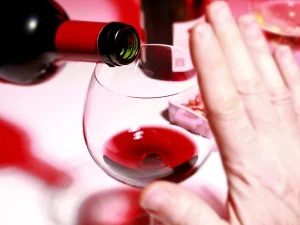
Pohl added that probiotic foods could help alleviate digestive issues, such as constipation and diarrhea, and may even help mental health. In fact, research published in the Journal of Agricultural and Food Chemistry in 2022 found that men who drank half a pint of beer per day had improved gut microbiomes as a result. But there is evidence that some types of beer could benefit health, largely as a potential source of probiotics. Drinking over the recommended limits can have immediate as well as long term health risks. If you drink too much for too long, you can become dependent, or physically addicted, to alcohol.
Search Health4U

Here https://ecosoberhouse.com/ are some tips to try, small changes that can make a big difference. It may help to have reminders to reinforce your decision to make a change, such as automated smartphone alerts that you send yourself. Cognitive-behavioral therapy (CBT) is an approach that can help you better understand your triggers and conditioning around alcohol.

Rehearse how you’ll tell people

This means that after a woman and a man of the same weight drink the same amount of alcohol, the woman’s BAC will tend to be higher, putting her at greater risk for harm. Take our short alcohol quiz to learn where you fall on the drinking spectrum and if you might benefit from quitting or cutting back on alcohol. Ria Health offers access to anti-craving medication, weekly coaching meetings (including CBT strategies), expert medical support, and much more—all through a handy smartphone app. Best of all, you don’t need to identify as an alcoholic to join.
Mindful Drinking: A Growing Trend That’s Here to Stay
Having a friend, family member, or even a colleague confront you about your drinking is one of the first major signs of alcohol misuse. “If you’re finding that people are starting to say things like, ‘I notice you drink a lot,’ or ‘You’re drunk again? ’ or there’s concern expressed from those close to you, that’s how to survive summer parties and boozy bbqs usually an early warning sign,” Dr. Kelly says.
Learn about U.S. guidelines for drinking
So, to that end, we thought that there needed to be some kind of dialogue going on around here about our drinking. And, just so you know (in case you were curious), we’re not here to pass judgment or to assume we know it all. Rather, we know that many adults around this campus drink, and we also know that there’s strong research that suggests that certain levels of drinking can cause significant problems for people.
- But perhaps another recent study made you nod with satisfaction — one suggesting alcohol lowers the risk of heart attack and stroke by improving stress signaling in the brain.
- If you are curious about changing your relationship with alcohol, I created this free 30-Day toolkit to help you cut down on drinking.
- I can’t count the number of times I woke up in the middle of the night hot, restless, and uncomfortable after having a few drinks.
Acronyms and Sobriety
You may find it helpful to look for mutual support groups, such as Alcoholics Anonymous and other groups, where you can connect with people who share experiences similar to yours. A support group specifically focused on alcohol recovery can provide valuable encouragement and information that can aid you on your road to being free from alcohol. In addition to therapy, support groups, and self-help options, you should consider some of the medications that are available which may improve your chances of quitting alcohol successfully. The goal of department based services is to provide work units and colleagues the opportunity to learn about health and wellness as a group activity or exploration. If you feel that you are ready to learn more about making changes in your drinking click here.
- The Rethinking Drinking website was produced by the National Institute on Alcohol Abuse and Alcoholism (NIAAA), a part of the National Institutes of Health.
- She demurred, possibly something about us being near-blackout drunk.
- For most of us, our alcohol use is just something that we’ve been doing for years, so we don’t think much about it.
- Even if none of the above apply, you still may want to cut back or quit drinking if you feel like your alcohol consumption is interfering with your life, creating problems in your relationships, or contributing to other issues.
Of course, we all can get a little carried away when a birthday party ends up being too much fun. You had an extra drink or two and you stayed out longer than planned—that’s not necessarily concerning. Now, if you relax with a drink every so often after a hard day, that doesn’t necessarily mean you have a drinking problem. But if you’re regularly using alcohol to feel less sad or depressed, to calm your nerves, or to feel confident enough to walk into a room full of people, then you may be setting yourself up for a dependency. “You’re using it as an escape hatch, and that’s a warning sign,” Dr. Specker says. Alcohol also promises to enrich your life by making any experience better—time with friends and family, an evening alone, a disappointing day, a celebration.

Immediate & Long Term Health Risks
Additionally, Kingsford says that people who are using alcohol as a coping mechanism to numb or avoid feelings or situations might be served by being more aware of when and why they’re drinking. With more energy and the incentive to explore new activities that don’t culturally encourage binge drinking, Bazilian believes you could become more tapped into the community. The first step, of course, is to decide whether cutting down or quitting is best for you.
